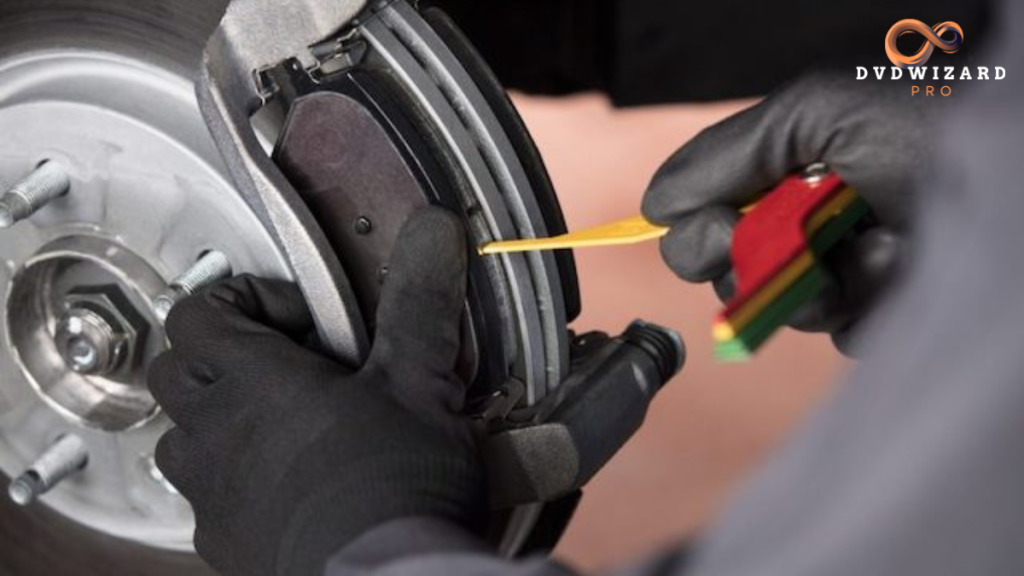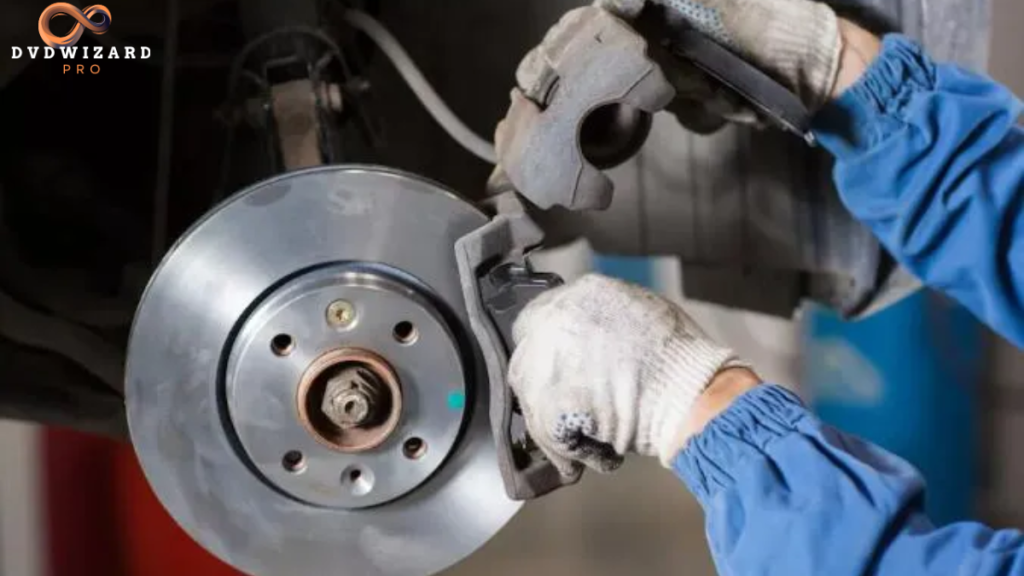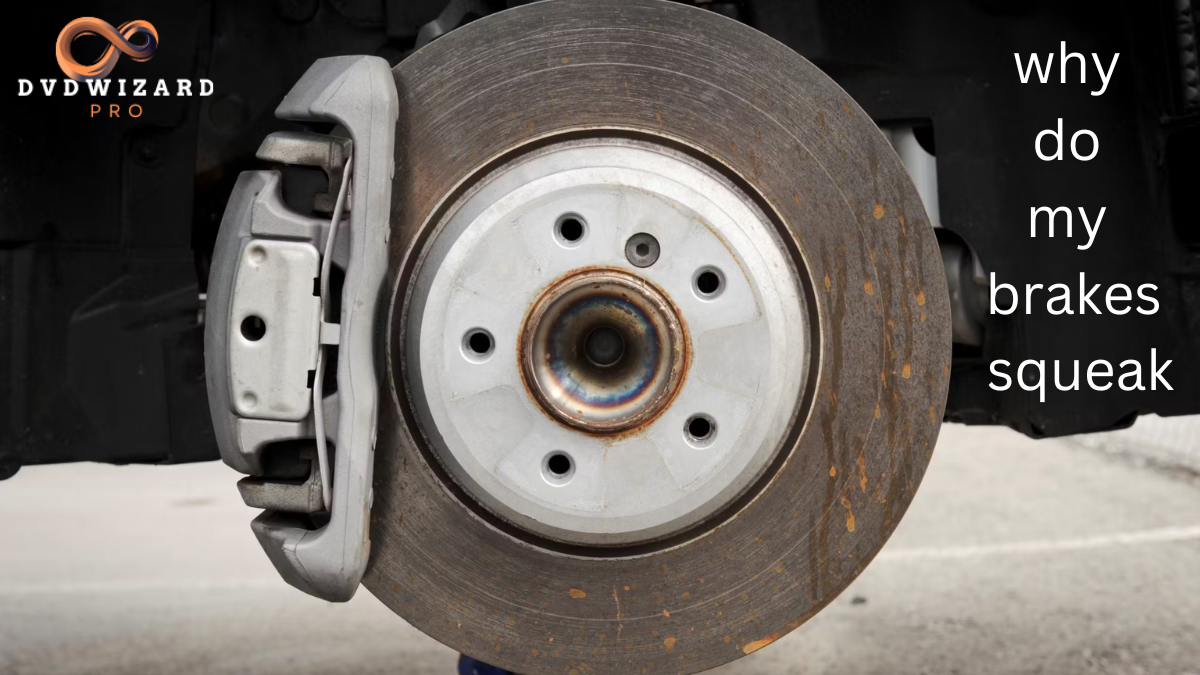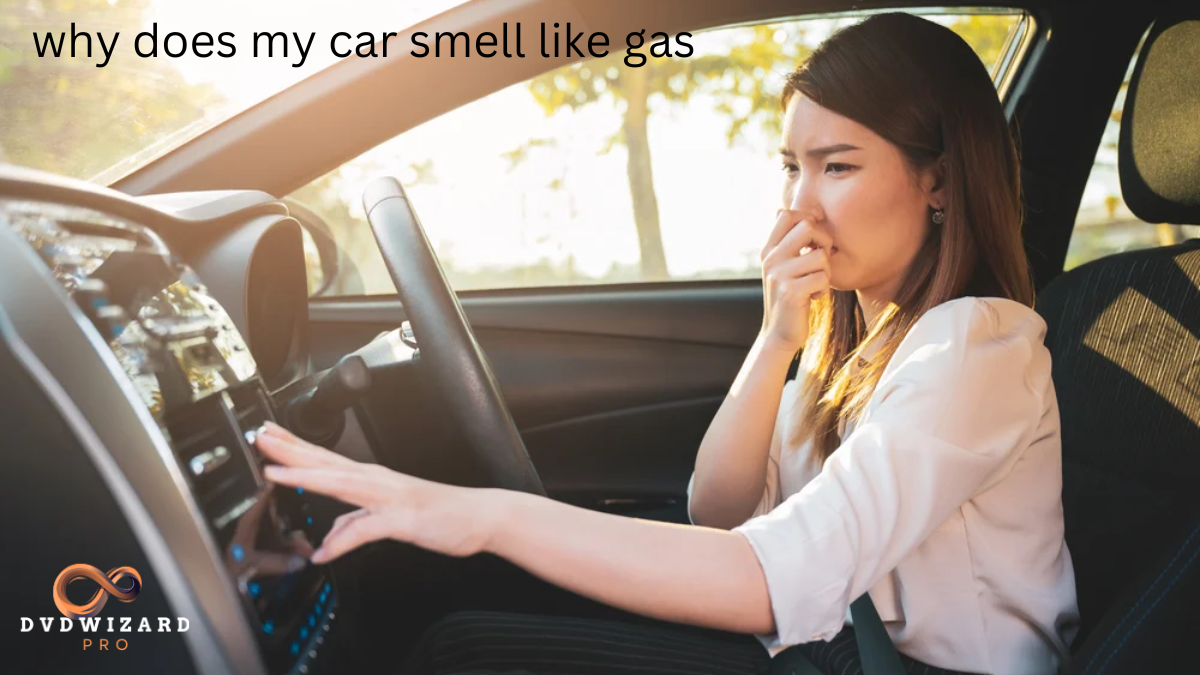Table of Contents
Why Do My Brakes Squeak? Hearing a squeak or squeal every time you hit the brakes can be frustrating. Why do my brakes squeak? You’re not alone. Many drivers deal with this annoying issue, which several factors can cause. Whether it’s due to wear and tear, weather, or dust buildup, understanding why your brakes squeak and learning how to fix them can make a big difference in your driving experience. In this article, we’ll go through the common reasons behind brake noise and share some practical steps to help you get a quieter, smoother ride.
Understanding Why Your Brakes Squeak

Brake noise is often more than just a minor nuisance; it also signals that something needs attention. When asking, Why do my brakes squeak? Here are a few common causes to consider:
- Brake Pad Wear: As your brake pads wear down, the metal components in the pads start to rub against the rotor, causing a squeak.
- Dust and Debris: Dust, dirt, or small debris can get trapped between the brake pad and rotor, creating a grinding or squeaking sound.
- Moisture: If you drive in rainy or humid conditions, moisture on your brakes can cause a squeak when braking.
- Glazed Brake Pads: Excessive heat can cause brake pads to harden or glaze, resulting in a squealing sound.
These are the most common reasons behind the question: Why do my brakes squeak? Let’s now look at how to stop that noise for a peaceful ride.
Inspecting Your Brake Pads
One of the first steps to fixing squeaky brakes is to check the brake pads. Thin or worn brake pads are one of the main reasons brakes start to make noise. If your brake pads are worn out, it’s time to replace them.
- Step-by-Step Inspection: Lift the car slightly to access the brakes. Look closely at the thickness of your brake pads. If they’re less than a quarter-inch thick, they need replacing. Make sure to handle brake pads carefully, as worn pads can be sensitive and may break apart.
- Replace Worn Pads: New brake pads can significantly improve stopping the squeak. Look for quality pads that last longer and better resist noise.
Keeping your brake pads in good condition will reduce your chances of asking, “Why do my brakes squeak?” because they’ll be in top shape.
Cleaning the Brakes Regularly

Dust, dirt, and debris are often silent culprits behind squeaky brakes. When tiny particles get between the pad and the rotor, they create friction that can lead to noise. Cleaning your brakes is a simple but effective way to prevent this.
- DIY Cleaning Steps: Use a spray cleaner designed for brakes. Spray it directly on the brake components to dissolve and wash away dirt. Avoid using household cleaners, as they can damage the brake parts.
- Keep It Regular: Cleaning the brakes every few months can help maintain a quiet ride. It’s beneficial after driving in dusty or muddy conditions.
This tiny routine can keep your brakes quieter and prevent that recurring Why do my brakes squeak? question.
Adjusting the Brake Hardware
Brake hardware includes the clips and shims that keep everything in place. Over time, these parts can shift or wear out, leading to squeaks. Ensuring all hardware is positioned correctly and in good shape can eliminate noise.
- Inspect the Hardware: Check for loose or broken parts around the brakes. If you see anything out of place, tighten or replace it.
- Use Brake Lubricant: Applying brake lubricant to the back of the brake pads and other hardware can reduce friction and help minimize noise.
Taking care of the brake hardware can significantly reduce the chances of wondering, Why do my brakes squeak? Well-maintained hardware equals quieter brakes.
Using Anti-Squeal Brake Paste
Another effective solution is anti-squeal brake paste, applied to the back of brake pads. This paste absorbs vibrations and prevents the metal-on-metal contact that often causes squeaking.
- How to Apply: Clean the back of the brake pads, then apply a small amount of paste where the pad touches the caliper. Avoid getting any on the front of the pads, as this can reduce braking effectiveness.
- When to Reapply: Anti-squeal paste lasts a long time, but it’s a good idea to reapply it during routine brake maintenance or whenever you change the pads.
Adding anti-squeal paste can be a quick and lasting fix, addressing the persistent issue of Why do my brakes squeak?
Avoiding Hard or Abrupt Braking
Hard braking can increase wear on your brakes, leading to squeaking sooner than expected. If you frequently hit the brakes hard, it’s an excellent habit to slow down and brake gradually.
- Drive Mindfully: By allowing yourself more distance to stop, you can use gentle braking instead of abrupt stops. This habit not only reduces brake noise but also extends the lifespan of your brakes.
- Smooth Braking Saves Money: Reducing hard braking will also mean fewer replacements, saving you money over time.
Adopting smoother braking habits can keep your brakes quiet and prevent the need to ask, Why do my brakes squeak? repeatedly.
Regular Maintenance Checks
Regular maintenance is the key to keeping your brakes in top condition. Taking your car to a trusted mechanic every few months can prevent brake issues before they start.
- Professional Check-Ups: A professional can spot worn parts, dirt buildup, or loose components early on, solving potential squeaking issues before they arise.
- Peace of Mind: Regular checks mean fewer surprises on the road so you can enjoy your drive without that annoying brake squeak.
A proactive approach to maintenance can answer the question, Why do my brakes squeak? with confidence, knowing your brakes are in excellent condition.
Also read: How to Stop Your Brakes from Making Annoying Noises.
Why do my brakes squeak? The answer is likely one of the common issues we discussed. By inspecting your brake pads, cleaning regularly, adjusting hardware, using anti-squeal paste, and practicing mindful braking, you can enjoy a quieter ride and a more pleasant driving experience. Regular maintenance and minor adjustments make a big difference in stopping that annoying squeak for good.




